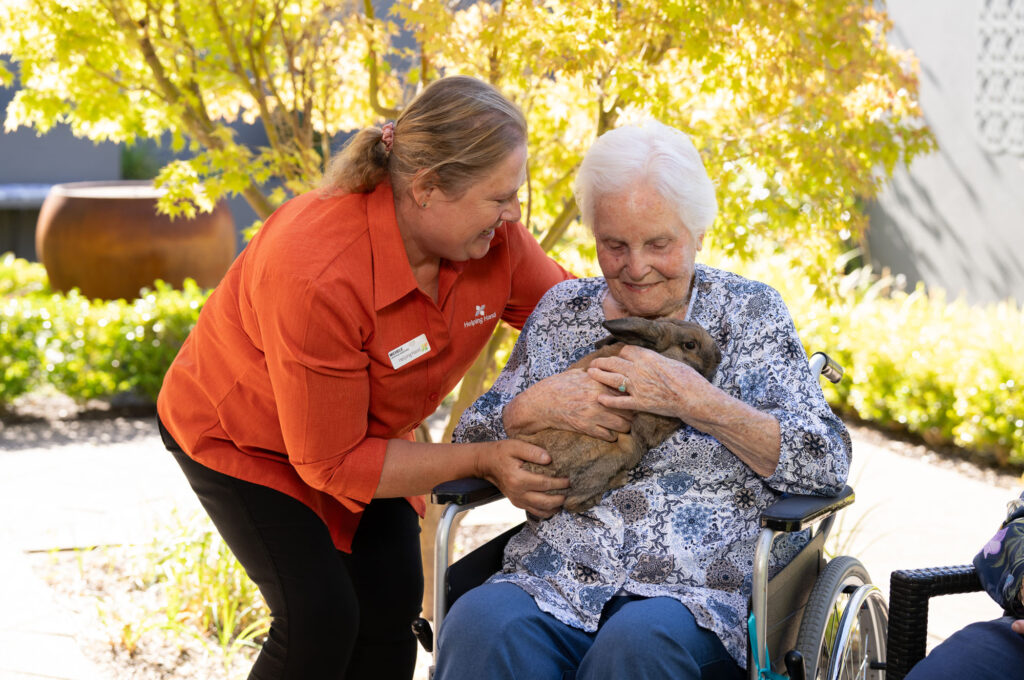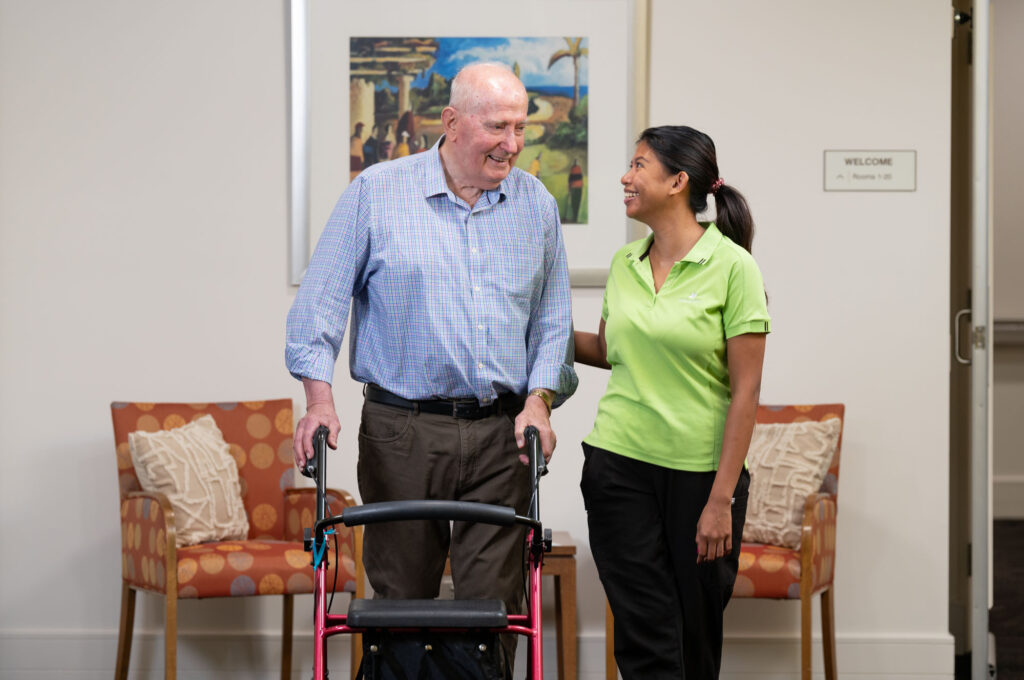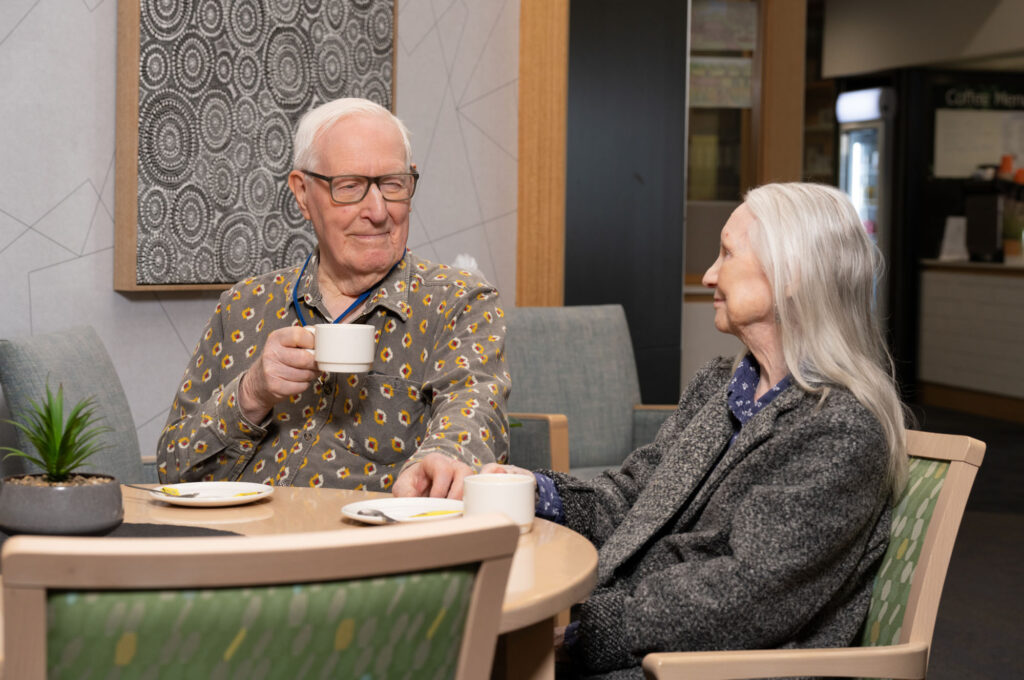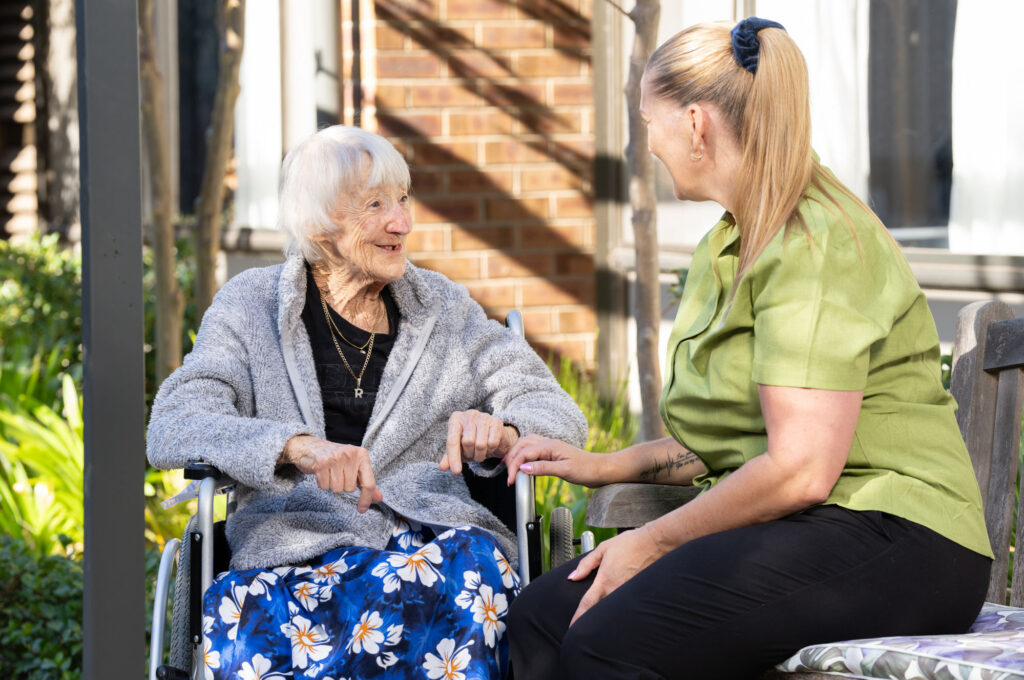If you need more information you can call one of our friendly team members now, or request a callback at a preferred time.
Or if you are ready to register your interest in this service, you can do this online now too.

We understand that people feel comfortable in their own home, maintaining their independence. We offer a range of services across metropolitan Adelaide and beyond so you can stay at home doing the things you love.
See Help at HomeNeed some more advice?
If you’ve got more questions about Help at Home, we’ve got answers.
See adviceIn our retirement living units you’ll have more time to enjoy doing the things you love without the maintenance of looking after a big home and garden.
See Retirement LivingNeed some more advice?
Is Retirement Living right for you? Get some extra advice from Helping Hand.
See adviceOur care homes offer a comfortable, safe and homelike environment with activities and care individually tailored to suit the needs and wants of our residents.
See Residential CareNeed some more advice?
Is Residential Care right for you? Get some extra advice from Helping Hand.
See adviceAged Care is so important. Some people forget that. You don’t and neither do we. Join our team and be part of something bigger. Together we’re there to care and here for good.
See CareersWhy work with us?
Do you want to join the Helping Hand team and make a difference?
See job vacanciesWe understand that people feel comfortable in their own home, maintaining their independence. We offer a range of services across metropolitan Adelaide and beyond so you can stay at home doing the things you love.
See Help at HomeNeed some more advice?
If you’ve got more questions about Help at Home, we’ve got answers.
See adviceIn our retirement living units you’ll have more time to enjoy doing the things you love without the maintenance of looking after a big home and garden.
See Retirement LivingNeed some more advice?
Is Retirement Living right for you? Get some extra advice from Helping Hand.
See adviceOur care homes offer a comfortable, safe and homelike environment with activities and care individually tailored to suit the needs and wants of our residents.
See Residential CareNeed some more advice?
Is Residential Care right for you? Get some extra advice from Helping Hand.
See adviceAged Care is so important. Some people forget that. You don’t and neither do we. Join our team and be part of something bigger. Together we’re there to care and here for good.
See CareersWhy work with us?
Do you want to join the Helping Hand team and make a difference?
See job vacanciesWe understand that people feel comfortable in their own home, maintaining their independence. We offer a range of services across metropolitan Adelaide and beyond so you can stay at home doing the things you love.
See Help at HomeNeed some more advice?
If you’ve got more questions about Help at Home, we’ve got answers.
See adviceIn our retirement living units you’ll have more time to enjoy doing the things you love without the maintenance of looking after a big home and garden.
See Retirement LivingNeed some more advice?
Is Retirement Living right for you? Get some extra advice from Helping Hand.
See adviceOur care homes offer a comfortable, safe and homelike environment with activities and care individually tailored to suit the needs and wants of our residents.
See Residential CareNeed some more advice?
Is Residential Care right for you? Get some extra advice from Helping Hand.
See adviceAged Care is so important. Some people forget that. You don’t and neither do we. Join our team and be part of something bigger. Together we’re there to care and here for good.
See CareersWhy work with us?
Do you want to join the Helping Hand team and make a difference?
See job vacanciesAt Helping Hand, we offer different types of care, including respite, permanent care, dementia care, and palliative care.

Carers are amazing. If you are a carer and need some time to rest and recharge then check out our range of respite options.
Find out more
Our residents and their families feel at home in our care homes. We offer choice and personalised care tailored to your needs and interests.
Find out more
People living with dementia are well cared for in our care homes. Our staff are trained in dementia care and can offer advice support to residents and families.
Find out more
Palliative care is more than just end of life. Our trained staff offer care and support for residents with chronic illnesses or conditions, promoting a better quality of life by alleviating suffering and fostering wellness.
Find out moreIf you need more information you can call one of our friendly team members now, or request a callback at a preferred time.
Or if you are ready to register your interest in this service, you can do this online now too.

The Australian Government developed the Charter of Aged Care Rights in July 2019, which you can download here in several languages. It gives information about your rights as a user of aged care services in Australia.
If you would like more detailed information about your rights as an older person, the Legal Services Commission, in partnership with the Office for the Ageing, has developed a guide called Know Your Rights.
Qualified nurses can visit clients in their home and make them feel safe and comfortable. They can help with managing wounds, medication, continence and more. They can carry out health assessments and reviews, and help with monitoring blood pressure, oxygen levels and more. Our nurses are a great support for people who are recovering from injury or illness and need some help to get back on their feet.
The cost of residential aged care varies from person to person, depending on which home you are moving into, and your own personal financial situation. The Government may contribute toward your care costs, and you may be asked to contribute towards them too if you can afford it. My Aged Care provides an overview of the costs involved on their website, and we also have an overview on our website, and publish our fees for our homes on each of our residential care home pages.
Retirement living is designed for people over 55 who are still active enough to live independently, providing a close community of like-minded people. An aged care home provides an increased level of support for people who are no longer able to live independently, with round the clock care available.
If you are considering moving into a residential aged care home, you will first need an assessment with a member of an Aged Care Assessment Team (ACAT). A member of an ACAT will talk to you about your current situation and help you work out what your options are. Once you have completed the ACAT assessment, you will receive a letter to let you know if you have been approved as eligible for Australian Government subsidised aged care services, including home care services and residential aged care accommodation. Your letter will tell you what type of services you’re eligible for and approved to receive, as well as the reasons why.
Transition care provides short-term care after a hospital stay to help you get back on your feet. You can have nursing, physical therapy and personal care services. You will need to have hospital staff arrange an assessment while you are still an inpatient, or you can arrange this yourself by phoning My Aged Care on 1800 200 422.